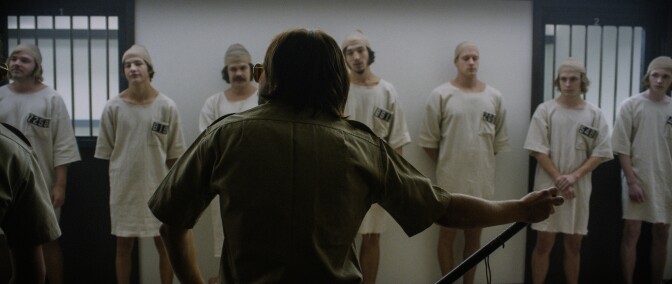It started as a simple test of role-play and compliance, an attempt to understand how placing a randomized sample could affect behavior. What happened next changed experiments forever.
The new film “The Stanford Prison Experiment” is based on a real experiment in 1971 that occurred in the basement of the Stanford Psychology Department. Head researcher Dr. Philip Zimbardo wanted to analyze how the relationships between people would change if some were given the role of “prisoner” and others of “guard.” The environment was a prison, and although all the subjects and researchers were aware that the experiment did not reflect reality, they were asked to treat it as such.
Zimbardo expected that the people might adapt to their roles, but the experiment worked much better (or worse) than even he could have foreseen. The “guards” started to ridicule, segregate, and torture the “prisoners,” leading to extreme breakdowns and emotional collapse. In his own role of lead researcher and superintendent, Zimbardo allowed the abuse to continue, which affected them all even after the experiment was cancelled after only six days.
Ethical standards for experiments in psychology and other disciplines have permanently changed as a direct result of this experiment - now proposed studies must be approved by Institutional Review Boards. But the experiment was filmed, and the new film is revealing to the public what had happened underneath the Stanford Psychology Department during those six days in 1971.
How would you have treated prisoners if you were a guard? Would you have rebelled if you were a prisoner? Do you believe that roles and institutional structures have the power to change the way people behave?
Guests:
Kyle Patrick Alvarez, Director of "The Stanford Prison Experiment" - a thriller based on a true story



